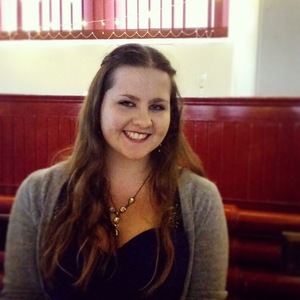I didn’t know what to expect from teaching English in a refugee camp. I knew it was something I wanted, and still want to do. I knew I was probably wholly unprepared for the actual scale of disruption to one's life being a refugee causes, and I knew that €150 per adult a month wasn’t a lot to live off when you had to think about clothing, food and other expenses. Yet refugee hospitality surprised me.
I spent part of my winter break working with The School Box Project, in LM village in the far west of Greece— not exactly where you may think to find a refugee camp. For starters, there are no tents; LM is a former holiday home set by the beach. The camp is old, abandoned, and apparently better kept than it used to be. Dogs roam around freely with the 100 kids joining them, and shouts of children playing football or basketball can be heard through the camp. The second anomaly is the sheer volume of children and families in a camp of almost 300, which is small compared to other refugee camps. It was predominantly Syrian and Kurdish families, and — through teaching the children every day — I fortunately got to know the families too.
I started out with home school, as we didn’t have enough volunteers. This involved going into people’s houses, which the children informed us they had cleaned for our arrival, and we were generously welcomed in. It was never a question of 'if' we wanted tea, just if we wanted more sugar (which was always a 'no' as there was so much sugar to begin with). Coffee was almost a guarantee, sometimes with sweets on the side, yet often without the families themselves having anything.
There was one mother who even told to come back an hour later as she wanted to make us cake, something I didn’t take seriously until I was radioing through to the other volunteers and inviting them to the house to join us for cake. I am normally a strict vegan, but in the face of cake and sweets made specifically for us, I didn't want to be rude by refusing such generous hospitality so I let my vegan morals slip.
There was also the opportunity to eat with a family, especially if you accidentally dropped in around mealtimes. Refusing would have been rude and I was more often than not welcomed in to homemade bread, rice, and vegetable dishes. Meat is expensive on a refugee budget, and yet it was still a food offered to volunteers. Similarly, when I asked for a mum's bread recipe, not only did I receive it but also a couple of loaves that were dropped off by the family, along with some of the pickled cabbage I had enjoyed (and since have made back home). None of it was extravagant food; it was simply good homemade food that was cooked in an old microwave oven with a hob on top. And refugee hospitality meant that it was always ready to be shared.

Sometime mealtimes were planned. We were invited a few days in advance, and a feast was laid out for us, with everything from stuffed courgette to soup, salad to stuffed cabbage leaves, and plenty of chilli. Although we worked with the kids, being invited in by the parents or being offered homemade bread as I walked past was a big step for me. Often the kids waved us in, but sitting for coffee or chai with the parents and chatting (using their limited English combined with my limited Arabic skills and Google translate), made me better understand what they had gone through.
Many of the families came from Moria, a camp on Lesbos known for its overcrowding and ill conditions. I heard more than once that it was worse than Syria. All of the refugees I met are fighters. They are stuck in limbo for years, leaving home without knowing where they will end up, or if they will survive crossing the sea and through other countries. They are unable to work properly without documentation or have their kids receive a proper education, and yet they continue on. Family is a source of strength, and it was a privilege to share a meal with them and listen to the difficult stories they chose to trust me with.
People in the UK demonstrate hospitality by offering you a cup of tea, but the people I met in LM demonstrate hospitality everyday. It's part of their culture. Arabic culture is renowned for its generosity, and even here with little resources, this tradition was continued in the refugee hospitality that I saw. My last evening in the camp consisted of an unplanned two hour coffee with one of the families that I was closest to (and fortunately still in contact with), as well as a quick burst of tears as I said goodbye before I collected myself to head to someone else’s house for dinner.

It is easy to be too busy for people in our world, but I was reminded by refugee hospitality that family and friends are the most important. It is not to do with the money you make, but the relationships you forge and the generosity that you offer and receive. Even in the periods of uncertainty in your life, simple hospitality shines through the darker times. There was a lot to be learned from the people I worked with, from their life experience to their generosity, and I am forever thankful for the people who supported both my volunteering and the charity's work. If you are interested in similar projects or donating, check out School Box or the Greek volunteer hub.



